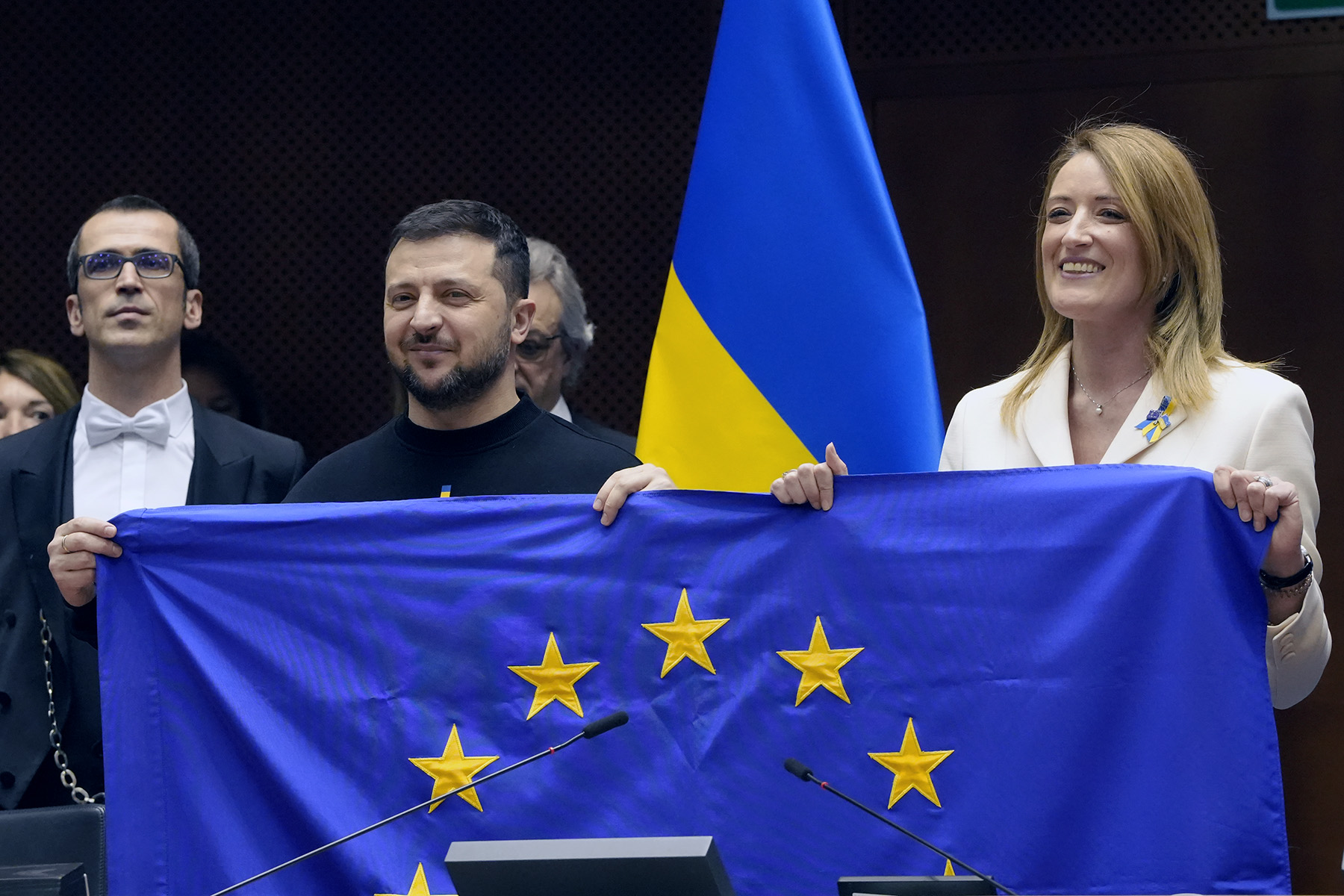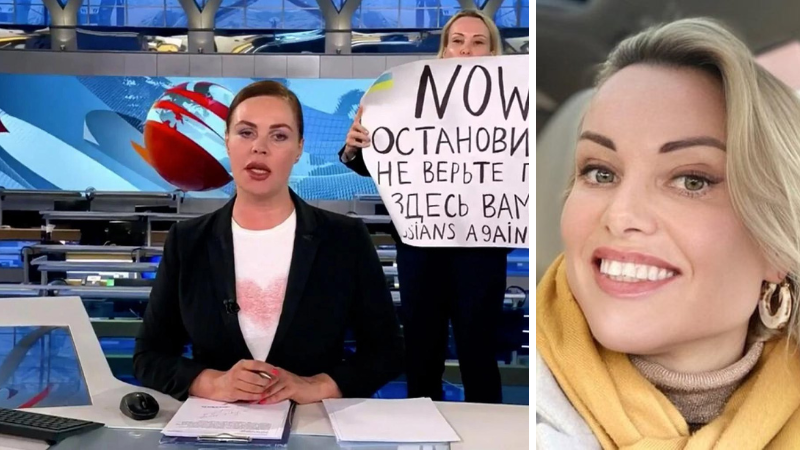It was an iconic moment at the start of Russia’s war on Ukraine when Marina Ovsyannikova, an editor at state-run Channel One television, ran onto the set of Russia’s most-watched news segment to hold up an anti-war placard, and she was hounded ever since until Reporters Without Borders (RSF) recently whisked her out of the country in incredible circumstances.
She was under house arrest in Moscow, fitted with an electronic bracelet and facing a possible ten-year jail sentence on a charge of “spreading false news about the Russian armed forces” for reporting the number of children killed in Ukraine.
RSF coordinated her extraction from Russia after the organisation reached out to her to offer support. An intermediary let RSF know she wanted to flee.
The international press freedom organisation left for Moscow a few days later.
“It was clear from the outset that getting Ovsyannikova and her daughter out of Russia would be difficult and dangerous. For four months, a small unit of RSF employees worked in the utmost secrecy on organising her escape,” the NGO said in a statement.
The decision was taken to do it on a weekend when a number of guards would be off work.
She deactivated her electronic bracelet with a wire cutter. In all, seven cars were used. Shortly before she reached the border, her car got stuck in a muddy field. With her guide, she had to cover the final several hundred metres in the dark.
After wandering for several hours, she eventually crossed the border and found RSF’s contacts waiting for her, according to her statements during a press conference held on 10 February. Ovsyannikova reached in France in October.
“What Marina Ovsyannikova has done shows that it is possible to resist propaganda apparatuses, that one can disrupt them from within, that one can say no, and that it is possible to get out of them, to defect, to oppose the falsification of history and the news, and to oppose their manipulation,” RSF Secretary-General Christophe Deloire said at the press conference.
Ovsyannikova has become a symbol of resistance.
After she broke onto the set of a live news segment on 14 March 2022, the journalist was detained with her whereabouts undisclosed until she was produced before a court in Moscow the following morning.
Ovsyannikova was charged with violating anti-protest laws and fined 30,000 roubles ($280), with her anti-war video cited as evidence.
Her father is Ukrainian. “The interrogation lasted for more than 14 hours, I wasn’t allowed to get in touch with my family or friends, I was denied access to a lawyer,” Marina told the media as she left the court on the day.

Ukrainian President Volodymyr Zelenskyy addressed the European Parliament on Thursday. Photo: EP
On Thursday, President of Ukraine Volodymyr Zelenskyy addressed the European Parliament during an extraordinary plenary session in Brussels.
In his address to MEPs, President Zelenskyy stressed how Russia is trying to annihilate not only sovereign Ukraine but also the European “way of life”.
He outlined how he sees Europe as a continent steeped in rules, values, equality and fairness and (…) a place where Ukraine is firmly at home. The Kremlin, on the other hand, is doing its utmost to destroy European values, President Zelenskyy said, stressing how Ukraine is fighting for and protecting Europe from this anti-European force.
This was President Zelenskyy’s first official visit to the European Parliament after having addressed MEPs remotely during an extraordinary session on 1 March 2022, shortly after Russia started its war against Ukraine.














The story of Ms Ovsyannikova’s escape from Russia reads like a story from the past cold war when people tried to flee the Communist Bloc in order to get their freedom and had to risk their life in order to cross or say surmount the iron courtain.
Sure, what she did was a brave act and courageous and the respond by the Russian state was like in the old times of the Soviet regime, the very one Putin dreams of restoring.
Now, she has become a prominent person which I suppose is examplary for many others who didn’t had the chance to do such an act of resistance during a live broadcast of TV channel. There are certainly many more journalists, media outlets which have had to quit their work either by political pressure put on them or even by court orders.
It is all so exemplary for all those authoritarian or autocratic regimes, call it what one like, that they can’t bear it to have a free media, a critical journalism that is independent from any partisan interference, where the law protects journalists and their work. It is also often the same that those among the population that express their contempt towards a free journalism, are the very ones that give the oppressors free reign and encouragement.
In Malta, the situation for journalists remains tens, going with the media articles, the way the PL govt is interfering with the only state run TV channel has raised the alarm but as usual, the public in its wider sense, remains rather indifferent to that. This is where it all starts, and the example from this article is where it can end, but once it has come that far, it’s often too late for change.